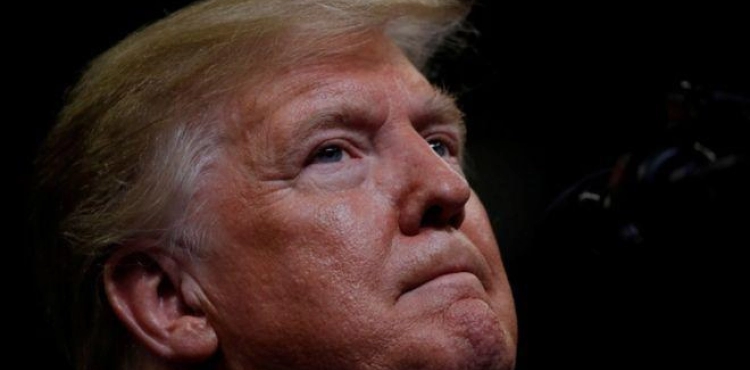Will Donald Trump this time take a military option against Iran?
In June, he retreated in the last minute, but after Saudi facilities were bombed on Saturday, Trump now has to make one of the most important choices since taking office.
The Republican president now faces the dilemma he has faced since his arrival at the White House: on the one hand he seeks to present himself as a strong president, but on the other he wants to meet his election commitments by turning the page on US military intervention in the Middle East, which he considers costly.
Three months ago, he retreated "ten minutes before the strike," he said, saying he preferred to avoid a disproportionate response to a drone attack that did not kill any American.
Shortly after the bombardment of Saudi Arabia on Saturday, Secretary of State Mike Pompeo rushed to accuse Iran directly, while Trump said the United States was "ready to respond", repeating the same term he used in June.
This time, however, Trump seemed more cautious than his secretary of state when he appeared to want to buy some time by saying he was waiting for "verification" to reveal the source of the attack.
Discussions are currently underway over the actual responsibility of Iran to bomb oil facilities in the east of the kingdom belonging to Aramco. Iran has dismissed Pompeo´s accusations as "baseless."
At the same time, Trump is using a policy of calm and escalation with Iran, making it difficult to predict what decisions he can take after the recent bombing.
After repeatedly reiterating his willingness to meet his Iranian counterpart Hassan Rouhani on the sidelines of the UN General Assembly in New York, he wrote in a tweet on Sunday: "The false news claims that I am ready to meet Iran unconditionally. This is inaccurate."
But a return to the recent statements by his top aides and his staff confirms the opposite. A few days ago, Treasury Secretary Stephen Mnuchin said, "The president said it clearly. He is ready to meet without preconditions."
"The American position on a possible war in the Middle East after the bombing of Saudi oil installations is not only ambiguous," he said.
"The president accuses Iran without proof. He denies agreeing to talks without conditions and has no clear goals on how to deal with Iran."
After months of intense tension between Washington and Tehran, will Trump move to action even if it leads to military confrontation rather than war of words?
Or will he eventually choose the path of diplomacy just days after the departure of his national security adviser John Bolton, known for his pro-war stances, especially with Iran?
The equation is complicated for Trump, whose predecessor Barack Obama was reluctant to make tough decisions.
Trump has repeatedly said that the "Syrian catastrophe" would have ended under Obama if he had committed himself to refusing to cross the red line he had set up in Syria in 2013. After Obama announced his country´s readiness to bomb Syrian regime positions following a chemical attack on civilians, he returned and retreated amid Everyone´s amazement.
Ben Rhodes, a former Obama adviser, believes that developments in the last 48 hours reveal that Trump´s strategy on Iran by withdrawing from the Iranian nuclear deal, giving the Saudis a blank check in the Yemen war, and intensifying sanctions and threats are indicative of the failure of his policy.
"Trump´s disastrous policy has put us on the brink of a full-scale war," Rhodes said in a tweet, warning of US military intervention that would have dire consequences.












